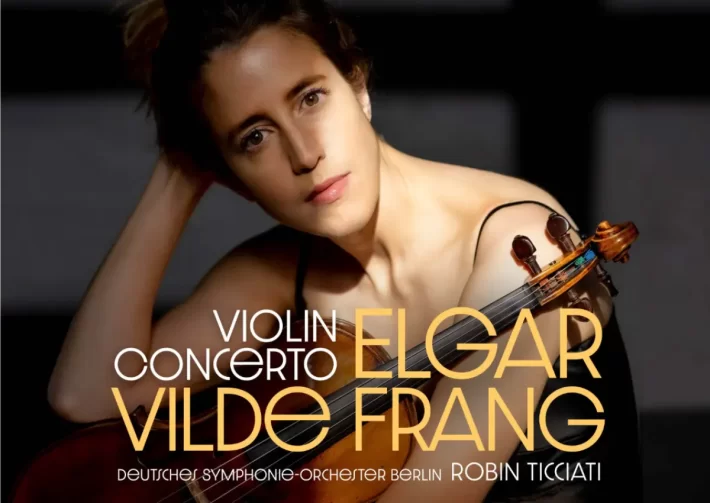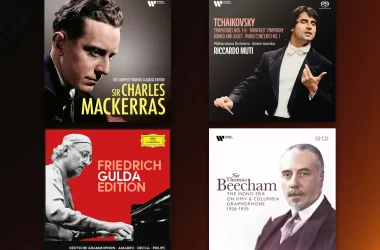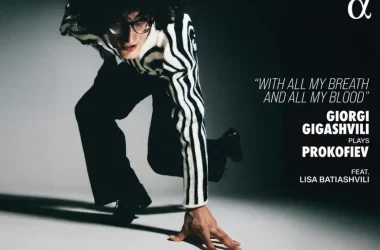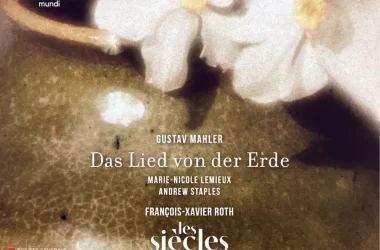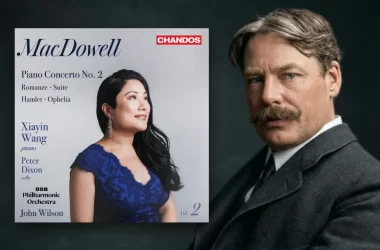Commissioned in 1909 by the Philharmonic Society, Elgar’s Violin Concerto was premiered at Queen’s Hill on 10 November 1910, played by Fritz Kreisler (to whom the work is dedicated) with the composer conducting. In addition to the Kreisler dedication, the score also includes a quotation from the novel Gil Blas by Lesage: “Aqui esta encerrada el alma de…..” (“Herein is enshrined the soul of…..”). Most scholars argue that this is a reference to Alice Stuart-Wortley (the five dots corresponding to the five letters of her first name), a close friend for whom Elgar developed romantic feelings. We don’t know if she felt the same way, or if the feelings were ever acted on, but she was certainly the muse that inspired this work.
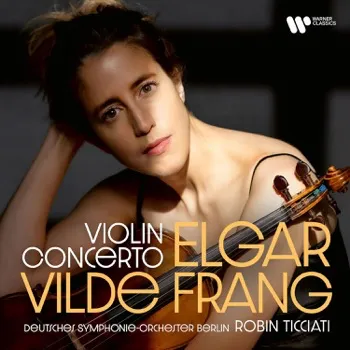
Vilde Frang is extraordinary, the most difficult technical passages easily dispatched. Her vibrato is varied and sensitive, adding life and nuance to the phrasing and articulation. Intonation is spot-on. And there is a quality to her playing, difficult to describe, that transcends technique.
At 6’19” in the opening movement, her sound becomes so wistful (surely an expression of Elgar’s tender feelings for “Windflower”). And while the two passages made up of double-stop runs (8’51” and 16’46”) are brilliantly executed by Tamin Little (RSNO/Davis/Chandos) and Renaud Capuçon (LSO/Rattle/Erato), Frang brings even greater intensity and luminosity. The magnetism of her playing throughout the concerto drew me in completely.
In recent years Ticciati and the RSO Berlin have accompanied Christian Tetzlaff in two albums of violin concertos (Ondine). Reviewing their album featuring the Berg and Brahms concertos, I wrote that Ticciati is a wonderfully accomplished accompanist, following and supporting every aspect of Tetzlaff’s interpretations. The same is true here.
The RSO Berlin has the full measure of this music: the opening of the first movement has a brazen nobility that outshines the RSNO/Davis recording (the Berlin horns relishing Elgar’s writing), while the burnished colors of the strings in the second movement Andante heighten Frang’s deeply emotive playing. And how affecting these performers make the central accompanied cadenza in the final movement, which is arguably the emotional climax of the entire work. This is partnership of the highest order.
While there should be plenty of elasticity to phrasing, the music’s symphonic structure also needs to be managed, which Frang and Ticciati do almost perfectly. By comparison, Rattle and Capuçon sometimes love the music (and the sound they are making) so much one loses sense of structural coherence. But what remained with me most is Frang’s complete connection to the music’s emotion and spirit. This reading embraces both a certain emotional reticence and more overt passion. Elgar’s music often spans these two emotional stances, and the most successful performances of his music, like this one, do the same.
Join The Classical Newsletter
Get weekly updates from The Classic Review delivered straight to your inbox.
The album concludes with two miniatures. Elgar’s “Carissima” was the first classical piece written to fit on one side of a 78-rpm record, meaning it could be no more than five minutes. Tranquil and charming, Frang’s lyrical playing is matched by Thomas Hoppe sensitive accompaniment.
“The Gardens at Eastwell – A Late Summer Impression” by William Lloyd Webber (the less well-known father of his two living sons, Julian, and Andrew) ends the program. In his notes, Lewis Foreman writes that he hopes this new recording might help the music find a place in the general repertoire, and Frang’s performance is a strong advocate for this evocative piece.
The Warner Classics recording is excellent, the violin well integrated into the overall sound picture. The short playing time of 55 minutes is the only disappointment; surely Frang could have added more of the composer’s short parlor pieces for violin, or perhaps an overture from the RSO Berlin and Ticciati? Both Little and Capuçon offer 20 more minutes of music on their albums. Nevertheless, Frang’s performance is deeply touching and urgently recommended.
Recommended Comparisons:
Kreisler | Menuhin | Capuçon | Benedetti
Elgar – Violin Concerto, Carissima for violin and piano
William Lloyd Webber – The Gardens at Eastwell “A Late Summer Impression”
Vilde Frang – Violin
Thomas Hoppe – Piano
Deutsches Symphonie-Orchester Berlin
Robin Ticciati – Conductor

Album Details |
|
|---|---|
| Album name | Elgar – Violin Concerto |
| Label | Warner Classics |
| Catalogue No. | 2173240942 |
| Amazon Music link | Stream here |
| Apple Music link | Stream here |

